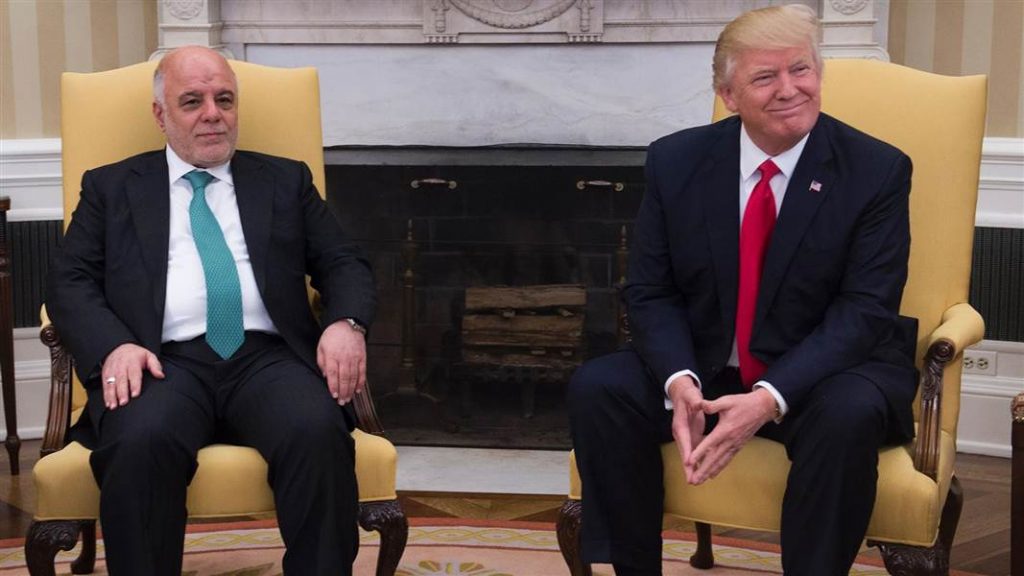US Policy in ME Reveled through Trump, Abadi Talks
YemenExtra
Y.A
Washington prefers militarized diplomacy to tackle the regions’ issues.
Iraqi Prime Minister Haidar Abadi’s visit to Washington, and his talks with US president Donald Trump have lighted over the US policy towards the region generally, and Iraq specifically; though it is still early to foretell the exact policy details Trump would take on.
The US administration is trying to quit from the last strategy taken on by former president Barak Obama, and is attempting to adopt a new one under Trump that could be inferred as follows:
– Iraq is a strategic saving that US troops should not have withdrawn from; as such Washington is going to reengage more forces in Iraq under the plea of fighting terrorism.
– The Americans are not happy to see the reemergence of Russia as a world power from the Syrian door; and they are eager to assert their supremacy in the region again by closing the doorway in Raqqa to prohibit any attempt to free it by any force other than the US backed Kurds.
– The US administration has shed a light its priority now represented by more military engagement against Takfiri terrorist groups in Syria, asserting that ousting president Bashar Assad is not a priority, at a time when Russia considered any attempt in this context as not conducive to the political process.
– Washington is not at ease with the increasing Iranian influence in Iraq, and thus is trying to strike a delicate balance by trying to increase its military support and training to the Iraqi forces, and by building more military bases all around the Iraqi geography. More importantly, Washington wants to invest in the sectarian schism by attempting to deepen the wedge among Iraqis, and try to play the Sunni tribes card this time.
– As for Iran, the US is not in a position to quit the nuclear agreement, but will rise its pressure on Iran in different ways so it can lower the Iranian influence on many issues of prime interest to Washington.
– Washington would prefer to support its traditional allies in the region especially Saudi Arabia, though with heavy price, and Egypt to equate the Iranian role.
– The Americans are interested in producing a political settlement to the Palestinian cause, either by organizing an international conference or by trying to solve the issue through direct Israeli Palestinian talks under US supervision.
– As a conclusion, Washington policy towards the region is a mixture of limited yet pointed military involvement, backed by intensified political and diplomatic efforts, and economic pressure rather than going into wars and open confrontations.

